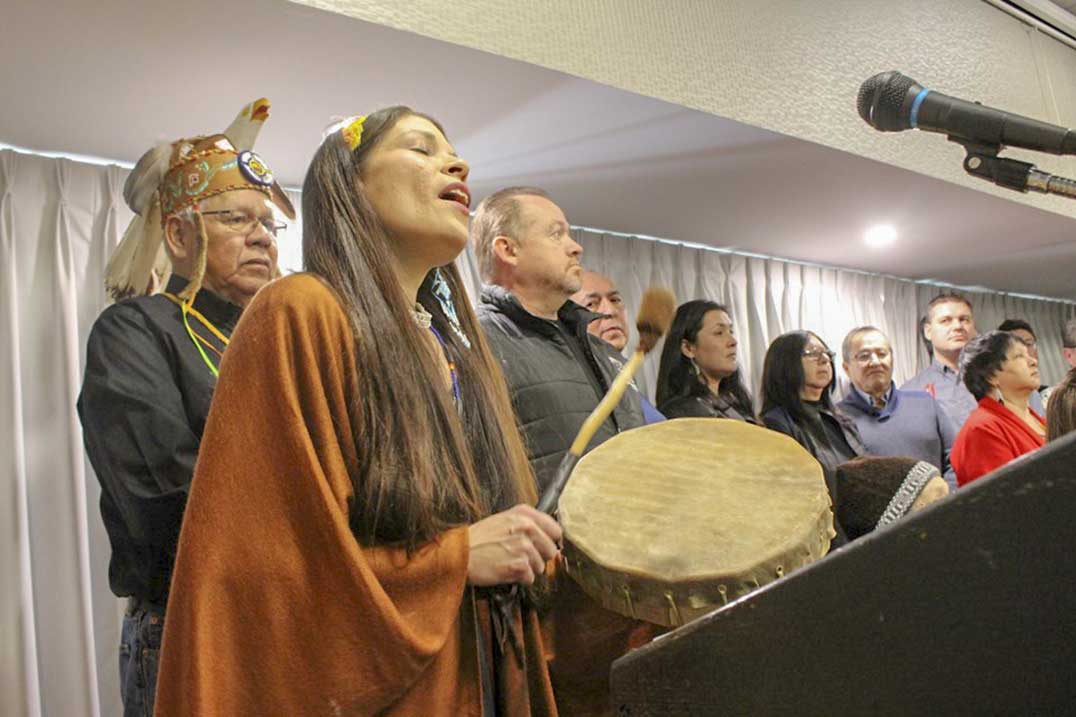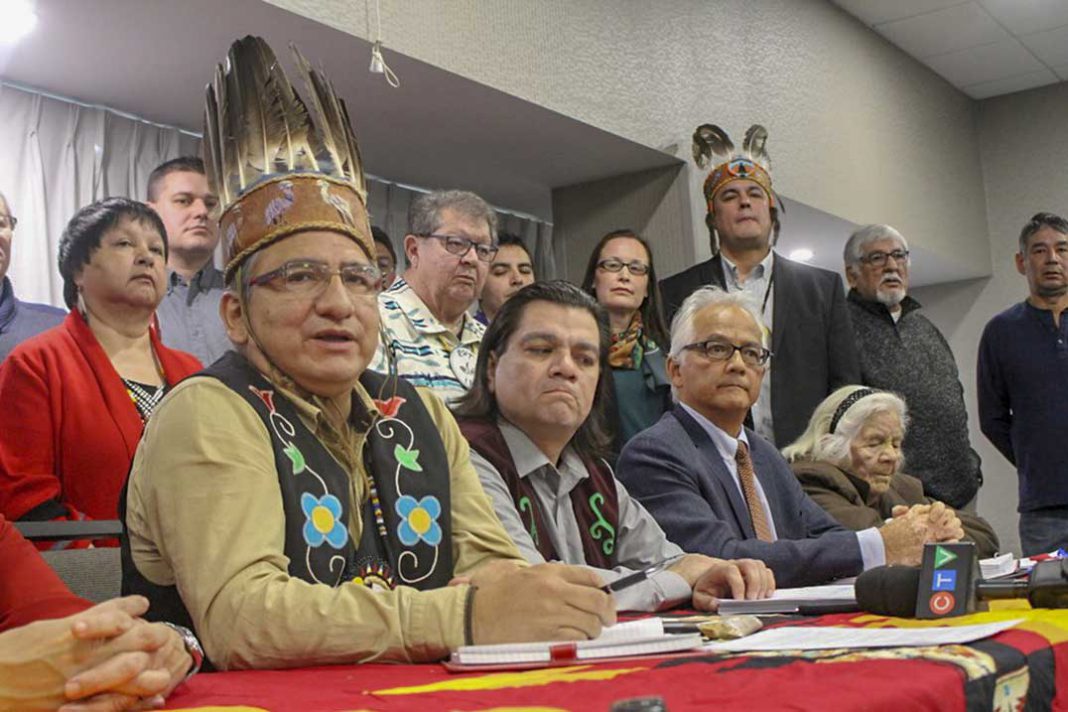Last increase was in 1874; ruling impacts 30,000 people
SUDBURY—It was a decision that has been a long time coming, but on Friday, December 20 the Honourable Justice Patricia Hennessy of the Superior Court of Canada ruled that the Crown has been shortchanging the First Nations signatories of the Robinson Huron Treaty by not increasing the $4 annuity they have been paying band members since 1874. The ruling has been lauded as historic and a major step forward.
In her finding, Justice Hennessy said the annuity agreement was a living document and not a one-time agreement. “As the historical and cultural context demonstrates, this was not the case; the parties were and continue to be in an ongoing relationship.”
Further, Justice Hennessy rejected the position of the Crown that they had unfettered power to determine their own treaty obligations saying that was to “invite unending litigation.”
The presiding judge further added that “since 1850, the Crown has acted with unfettered discretion in their interpretation and implementation of the treaties in a way that has seriously undermined their duty of honour.” She also concluded that the court has the authority to “impose specific and general duties on the Crown.”
Hearings began in Thunder Bay last September, but the battle to get the issue into the courts stretched much further back.
An exact amount was not set out in Justice Hennessy’s ruling, but her decision clearly indicates that the annuities are to now be unlimited in their scope and that they are intended as a mechanism to share the wealth generated by the resources within the treaty territory. The annuities would have to jump several thousand percent just to meet the Bank of Canada inflation rates alone—and considering the immense wealth that has flowed from the region, probably considerably more. Perhaps even more important than the money itself is the precedent this decision sets, one that could have implications for every other treaty.

“The courts have honoured our Anishnabek perspective and honoured Anishnabe law and placed it on equal footing before the foreign court systems,” said Wiikwemkoong Ogimaa Duke Peltier, one of the main spokespersons for the plaintiffs.
Justice Hennessy indicated in her decision that the two sides need to sit down and negotiate new terms.
“The Anishinaabe and the Crown now have an opportunity to determine what role those historic promises will play in shaping their modern treaty relationship,” she wrote. “The pressures they faced in 1850 will continue to challenge them. However, in 1850 the Crown and the Anishinaabe shared a vision that the Anishinaabe and the settler society could continue to co-exist in a mutually respectful and beneficial relationship going into the future. Today, we arrive at that point in the relationship again. It is therefore incumbent on the parties to renew their treaty relationship now and in the future.”
The lawsuit, which was originally launched in September 2014, finally got underway on September 25, 2017 in Thunder Bay and four weeks of court time was booked there. The case then shifted to Garden River First Nation and Manitoulin Island. The final stop on the court case road trip was in Greater Sudbury on November 2017.
Originally, the annuity was set at $1.60 per treaty member and for the next 24 years it was incrementally increased.
“It was discontent about mining activities by settlers without the free, prior and informed consent among the Lake Huron Anishinabek that forced the Crown to enter into a treaty relationship to get access to the lands and resources they coveted,” said Ogimaa Dean Sayers, of the Batchewana First Nation of Ojibways. “Unfortunately, the failure to honour the treaty promise meant the discontent continued and will continue until the case is settled. This decision is the first step to have the treaty enforced and to deliver a sharing of the wealth that our ancestors negotiated.”
The Crown has a set period in which they might appeal the decision, but Ogimaa Peltier said that he was confident that the decision will stand as both the province and the federal Crown agreed during the proceedings that the payments should have been indexed.
Leaders from Robinson-Huron treaty are now calling on provincial and federal governments to negotiate settlements rather than risk ongoing litigation which could take at least a decade and cost untold amounts in legal fees for both sides.
“The decision was very explicit that there must be full disclosure of the revenue derived from the territories,” said Ogimaa Peltier.
But as it stands at press time Monday, the First Nations had yet to hear back from the Crown about when those negotiations were likely to start.



